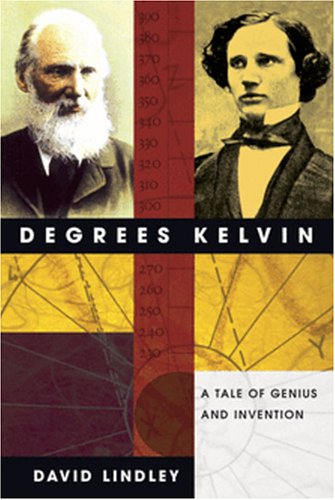- Home
- » Details - Degrees Kelvin
My Lists
Featured Lists
- Best Historical Fiction
- Women Fic 2014
- Library Journal: September 1 2014 Starred Reviews
- Library Journal: August 2014 Starred Reviews
- Library Journal: July 2014 Starred Reviews
- Library Journal: June 15 2014 Starred Reviews
- Library Journal: June 1 2014 Starred Reviews
- Library Journal: May 15 2014 Starred Reviews
- Library Journal: May 1 2014 Starred Reviews
- Library Journal: April 15 2014 Starred Reviews
- See More Featured Lists
Degrees Kelvin
a tale of genius, invention, and tragedy
By Lindley, David
Publishers Summary:
Not Rated. Be the first to rate this product!
- ISBN
- 978-0-30909-073-5
- Publisher
- Washington, D.C. : Joseph Henry Press, c2004.
REVIEWS
Library Journal
Reviewed on February 1, 2004
Having achieved some acclaim for The End of Physics, Where Does the Weirdness Go?, The Science of Jurassic Park, and Boltzmann's Atom, Lindley-an astrophysicist by training-will certainly receive more with this latest effort. He takes us into the delightful world of mid-19th-century British academia to the scientific circles of Joule, Stokes, Maxwell, Helmholtz, and, in the middle of it all, Thomson, Lord Ke...Log In or Sign Up to Read More




